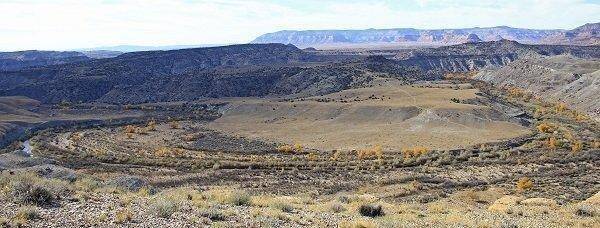Hearing that congress was in the process of approving a budget and keeping the country from another shut down was a relief for many. But in that process, a new and potentially devastating problem came to light for counties all over the West. Payment in Lieu of Taxes, or PILT, was not funded.
A lot of western lands remain in the hands of the federal government. Carbon and Emery counties have almost 27 million acres of land that is considered federal between them. Congress authorized Public Law 94-565 on Oct. 20, 1976 to local governments to help offset losses in property taxes due to non-taxable federal lands within their boundaries.
According to the Department of the Interior, Carbon County received $1,049,658 in PILT and Emery County’s amount was $1,201,940. This money is critical to each county’s budget and dealing with those types of budget cuts could be devastating.
Carbon County Commissioner Casey Hopes said that the county has already had to tighten its belt over $2 million due to Centrally Assessed Property Tax reductions within the county. Carbon County officials chose to cut the budget as much as possible rather than pass those costs to tax payers in the county.
Hopes remains upbeat and does not want the public to panic. He and the other commissioners are actively trying to educate those in congress that can restore these funds. He is frustrated that the loss of those monies are even an option.
“The federal government is the largest property owner in the county and they should pay taxes on what they own,” Hopes said. “Essentially that is what PILT is about. We still provide services on that land such as road maintenance, search and rescue and other emergency services.”
He also explained that the federal government takes 52 percent of mineral lease payments for operations on federal lands. The other 48 percent is sent to the state and dispersed. The county cannot take PILT and receive mineral lease money.
Emery County Commissioner Jeff Horrocks is cautiously optimistic that PILT money will soon be restored. He says he has heard from both Senator Mike Lee and Representative Jason Chaffetz and that they feel that it will be put back in place somewhere. But overall budget and sequestration wranglings in Washington have left Emery County scrambling to adjust just like many other rural counties across the nation.
Horrocks said that state mandated reductions have put the counties in the position to find funding or do away with some critical programs. They are negotiating with some state agencies, Bureau of Land Management and U.S. Forest Service, to try and get them to pay for some of the services that the county is providing. “The most important job as commissioners is to take care of the people in this county,” he said. “We have to always spend their tax money wisely.”
Both Carbon and Emery county commissioners are working hard with congress to understand the importance of PILT to the local areas that have much of their lands within borders designated as federal. They will be closely watching as this works its way through the process over the next few weeks. As it stands now, PILT is included in the Farm Bill but that will take months to wind through the congressional process.

